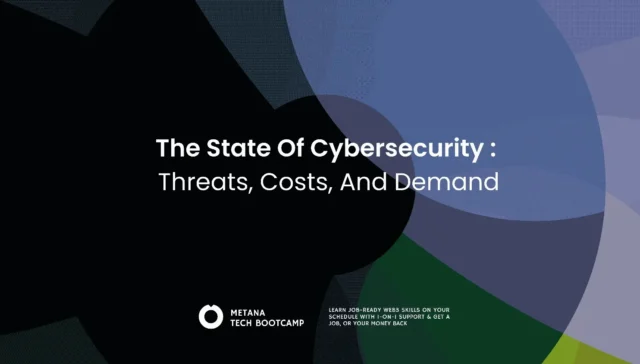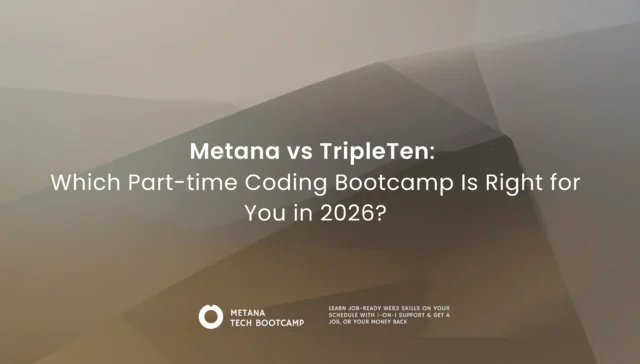TL;DR
- Blockchain enhances security, transparency, and efficiency across industries, and blockchain in different industries goes from finance and healthcare to gaming and real estate.
- Smart contracts and decentralized systems reduce fraud, eliminate middlemen, and streamline operations in supply chains, banking, and government services.
- Industries like media, education, and gaming benefit from blockchain-powered digital ownership, credential verification, and secure transactions.
- As blockchain adoption grows, businesses leveraging its potential will gain a competitive edge in an increasingly decentralized world.
In this article, we explore the impact of blockchain in different industries and its long-term benefits. Blockchain technology is rapidly transforming various industries by enhancing security, transparency, and efficiency. Originally developed for cryptocurrencies, blockchain has evolved into a revolutionary tool with applications across multiple sectors. Businesses and governments are exploring how decentralized, tamper-proof ledgers can optimize operations and mitigate risks. The increasing reliance on digital transactions and data-driven solutions further amplifies blockchain’s relevance. As adoption accelerates, companies are finding new ways to integrate blockchain into their existing systems to improve efficiency. The convergence of blockchain with technologies like AI and IoT is opening doors to automation and self-executing contracts, transforming traditional business models.
Adopting Blockchain In Different Industries
Finance and Banking
The financial sector was one of the first to adopt blockchain, thanks to its potential for secure and efficient transactions. Decentralized Finance (DeFi) eliminates intermediaries by offering peer-to-peer financial services such as lending, borrowing, and trading. For example, platforms like Uniswap and Aave allow users to trade and borrow assets without banks. In a world where financial fraud is increasingly common, fraud prevention has become a significant advantage, as blockchain’s immutability helps prevent fraudulent transactions and identity theft. Smart contracts play a vital role by ensuring faster settlements without requiring third-party involvement, as seen in Ethereum-based agreements. Traditional banks like JPMorgan Chase are also exploring blockchain-based payment solutions, indicating a shift toward mainstream adoption.

Supply Chain Management
Supply chains benefit significantly from blockchain’s transparency and traceability. It enhances traceability by allowing companies to track products from raw materials to delivery, ensuring authenticity. For instance, IBM’s Food Trust blockchain is used by Walmart to track fresh produce and ensure food safety. Fraud reduction is another major advantage, as recording every transaction on a distributed ledger minimizes counterfeiting. Several industries such as food safety, pharmaceuticals, and luxury goods leverage blockchain to prevent product tampering and maintain high standards. This has also made global trade more reliable, as companies like Maersk use blockchain for seamless cargo tracking.
Healthcare
Blockchain enhances patient data security and streamlines medical operations. Secure patient records allow healthcare providers to maintain patient data that remains unaltered and accessible only to authorized parties. Estonia’s e-Health system, for example, uses blockchain to secure patient data. The blockchain-based drug supply chain helps prevent counterfeit drugs by verifying authenticity and tracking shipments. In medical research, blockchain protects research data from breaches and ensures integrity in clinical trials. Additionally, hospitals and insurance providers can automate billing and claims verification, reducing fraud and inefficiencies.
Real Estate
Real estate transactions can be complex and prone to fraud, making blockchain a valuable tool. Smart contracts automate property transactions, reducing paperwork and legal costs. The Propy platform allows real estate deals to be executed via blockchain, eliminating the need for intermediaries. Eliminating intermediaries allows buyers and sellers to interact directly without agents, reducing extra expenses. Ownership transparency is another benefit, as secure digital records ensure tamper-proof property ownership tracking. This is especially beneficial in countries with unreliable land registry systems, where blockchain offers a corruption-resistant solution.
Automotive Industry
The automotive industry is integrating blockchain to streamline sales, maintenance, and innovation. Vehicle history tracking enables buyers to verify a vehicle’s maintenance history using blockchain, ensuring transparency. Companies like CarVertical use blockchain to provide vehicle history reports. Secure transactions eliminate fraudulent sales and ensure title authenticity. Blockchain also supports data sharing for AI-driven vehicle networks, playing a crucial role in autonomous vehicles. Carmakers such as BMW and Tesla are also experimenting with blockchain to secure vehicle software updates and protect against cyber threats.
Oil & Gas / Energy Sector
Blockchain is driving efficiency and security in energy trading and management. It supports sustainable energy trading by enabling peer-to-peer energy exchanges for renewable resources. The Brooklyn Microgrid project, for instance, allows residents to trade solar energy using blockchain. Fraud reduction is another key benefit, as blockchain eliminates discrepancies in energy transactions. Enhancing operational efficiency improves logistics and supply chain transparency in the oil and gas industry. Large corporations like Shell and BP have already started blockchain-based energy trading platforms to enhance efficiency.
Media and Entertainment
The entertainment industry faces challenges like piracy and unfair revenue distribution, which blockchain addresses effectively. The use of NFTs helps artists tokenize their work, establishing ownership and protecting intellectual property. Platforms like OpenSea allow creators to sell digital art as NFTs. Blockchain facilitates fair revenue distribution, ensuring creators receive the compensation they deserve. Anti-piracy measures strengthen copyright protection by verifying content authenticity and reducing illegal distribution. Streaming services like Audius leverage blockchain to allow musicians to retain control over their music without intermediaries taking a significant cut.
Education
Blockchain technology enhances credibility and security in academic credentials. Digital certificates issued through blockchain allow institutions to provide verifiable diplomas, reducing the chances of fraudulent credentials. MIT issues blockchain-based diplomas to its graduates. Blockchain prevents diploma fraud by ensuring only genuine academic records are recognized. Secure student record management allows institutions to store academic records in a way that guarantees lifelong verification. This system also benefits employers, as they can instantly verify a candidate’s credentials, reducing the risk of hiring unqualified individuals.
Government and Public Sector
Governments are exploring blockchain to improve transparency and service delivery. Blockchain voting systems ensure secure and transparent elections, reducing the risk of election fraud. West Virginia tested blockchain-based voting for overseas military personnel. Identity management is another critical area, where secure digital IDs help combat identity theft. Government services also benefit, as blockchain enhances efficiency in public administration and record-keeping. Some governments, like Dubai, aim to become fully powered by blockchain by digitizing government transactions for greater efficiency and security.
Gaming and eSports
Blockchain is reshaping the gaming industry by introducing new monetization models and security measures. Play-to-earn games allow players to earn blockchain-based assets that hold real-world value, transforming the gaming economy. Axie Infinity is a well-known example of a blockchain-based game with a play-to-earn model. Fraud prevention ensures fair gameplay and secure in-game transactions, preventing manipulation. Blockchain-powered matchmaking creates fair and skill-based competitions, enhancing the gaming experience. Additionally, game developers are using blockchain to create unique in-game assets that players truly own, which can be traded or sold outside the gaming ecosystem.
Benefits of Blockchain Adoption Across Industries
The adoption of blockchain across industries comes with several key advantages. Transparency and security are improved, as transactions are recorded in an immutable ledger, reducing fraud. Cost reduction is achieved through process automation, cutting administrative expenses. The elimination of middlemen allows direct transactions without third-party interference, making industries more efficient. Enhanced efficiency speeds up processes such as payments, contract execution, and supply chain tracking. As blockchain matures, we may see even more industries leveraging its potential for groundbreaking innovations.
Conclusion
Blockchain technology is revolutionizing multiple industries by enhancing security, efficiency, and transparency. Blockchain in different industries goes from finance and healthcare to real estate and gaming, businesses are leveraging blockchain to streamline operations and ensure data integrity. As adoption increases, blockchain’s potential to disrupt traditional industries will continue to grow, making it a transformative force for the future. Companies that embrace this technology early are likely to gain a competitive edge, while those that resist may find themselves struggling to keep up in an increasingly decentralized world.
FAQs
How is blockchain transforming the finance industry?
- Blockchain enables secure, decentralized transactions, reducing fraud and eliminating the need for intermediaries. It powers Decentralized Finance (DeFi) platforms like Uniswap and Aave, allowing users to trade, lend, and borrow without banks.
Can blockchain improve supply chain management?
- Yes, blockchain enhances traceability and transparency by recording every step of a product’s journey. Companies like Walmart use IBM’s Food Trust blockchain to track food safety, reducing fraud and counterfeiting in global supply chains.
What are the benefits of blockchain in healthcare?
- Blockchain ensures secure, tamper-proof patient records, prevents counterfeit drugs in the supply chain, and protects medical research data. Estonia’s e-Health system is an example of blockchain-powered healthcare innovation.
How does blockchain impact the real estate industry?
- Smart contracts simplify property transactions, reduce paperwork, and eliminate middlemen. Platforms like Propy use blockchain to execute real estate deals securely and transparently, reducing fraud and legal complexities.
Is blockchain technology beneficial for gaming and eSports?
- Absolutely! Blockchain powers play-to-earn games like Axie Infinity, ensures secure in-game transactions, and enables true ownership of digital assets through NFTs, allowing players to buy, sell, and trade items securely.







